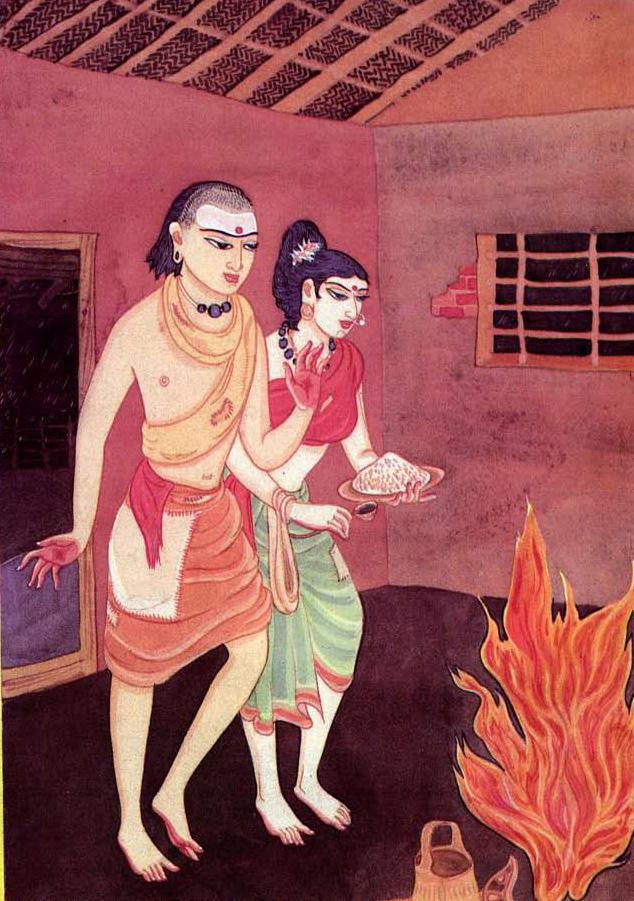Ilayānkudimāra Nāyaṉār
Seeing the divine reflection in each of Lord Siva’s devotees, Maaran of llayaankudi made it his duty to extend hospitality to devotees whenever possible. Unrelenting in this determination, he stopped at nothing to serve the needs of the pilgrims of Mahadeva. Even when the Lord decided to test him by slowly reducing his wealth till he had lost all he owned, Maaran remained steadfast and continued to feed devotees, even when it meant going into debt.
One late rainy night, the Lord disguised as an aged monk appeared at Maaran’s door. Maaran with heavy heart quietly enquired of his faithful wife: ‘Though we lack food for ourselves, still, we have to find a way to feed this noble guest.’ She replied: ‘It’s too late to ask the neighbours for help but the paddy seeds sown yesterday should be floating in our field on account of the heavy rains. If you gather them, I can prepare some rice’. Maaran’s heart quickened and he jumped up with enthusiasm and rushed out into the rainy darkness. Once reaching the field, he felt his way through the wet black-night in order to gather the paddy seeds, which were floating just as his wife had suggested they might. Meanwhile his wife harvested half-grown tender greens in the back garden. But now a more immediate problem presented itself: without fuel and with all possible fuel sources outdoors wet from the torrent, by what means would she be able to cook? Maaran wasted no time in cutting down a bamboo rafter from the roof of the house. When everything was ready, the devotee went to the guest and gently waking him said, ‘Oh, great and noble one, deign to partake of my humble fare’. Then a great flame rose up before their bewildered gaze and the Lord gave darshan from the heavens, mounted on his bull, along with his consort, proclaiming to the devotees: ‘Beloved ones! You have offered adoration in a most acceptable way. Both of you, now come to my abode where you may continue your service in full glory.
Reproduced from the August 2014 issue of the Saranāgatī eNewsletter
published by Sri Ramanasramam. The above text has been freely adapted from editions
of Periapurāṇam, Siva Bhakta Vilāsam (published by Sri Ramanasramam) and other texts.

